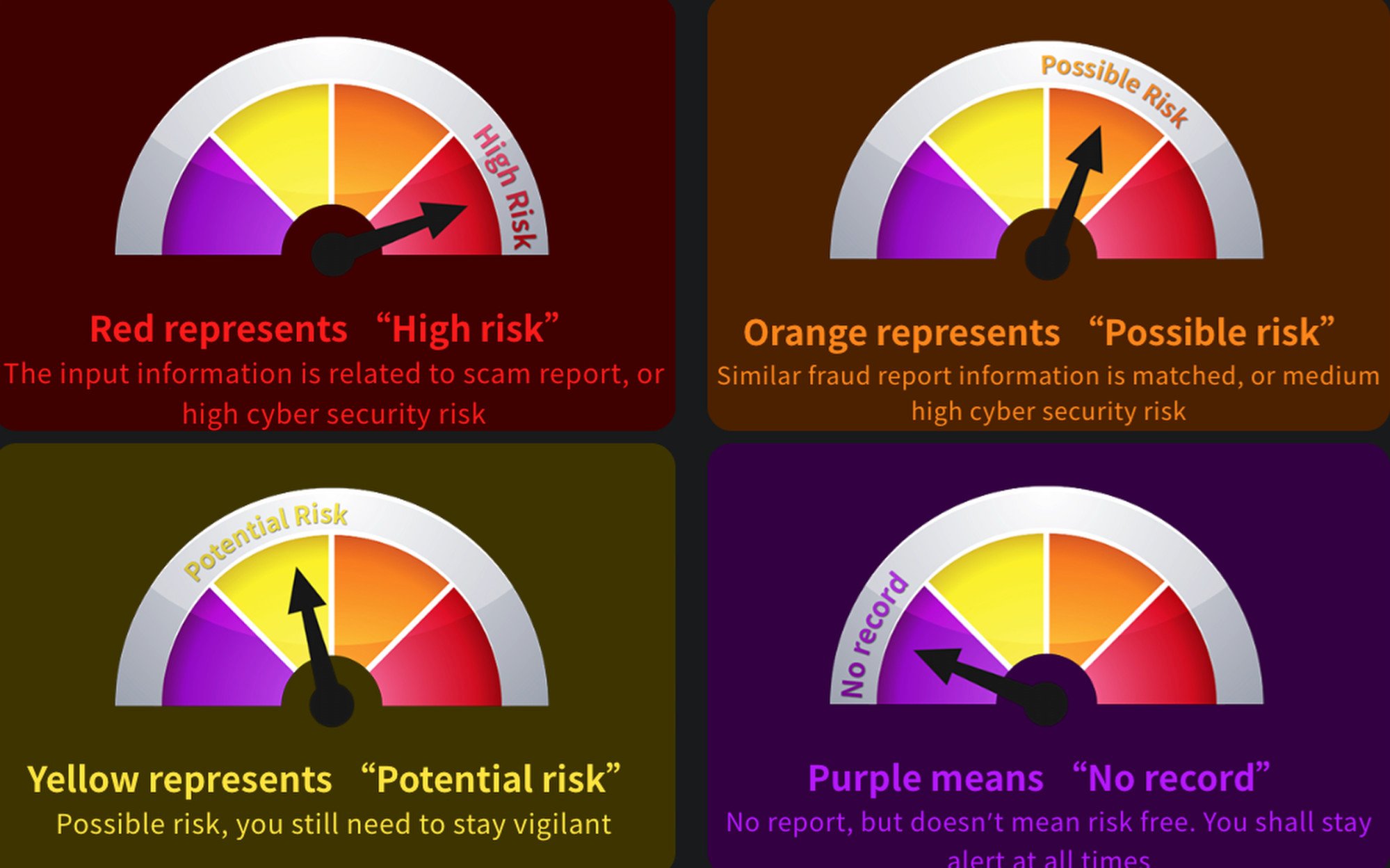
Hong Kong is seeing an alarming rise in scams, with victims from all walks of life. Here’s how police are ramping up the war on borderless crimes
- Number of scams shot up to 19,444 in first nine months of 2022, ‘but it could have been much worse’
- Police add more officers, tech expertise to obstruct criminals and alert potential victims in time
Chief Superintendent Kelly Cheng Lai-ki spent decades in Hong Kong’s police force dealing with everything from commercial and financial crime to gang activities and child and sex abuse.
Many of those cases were tough, but they were not quite as hard as dealing with online crime and scams which have proliferated in recent years, said the head of the force’s cybersecurity and technology crime bureau.
“The most challenging thing is that online scams are cross-boundary and anonymous,” she told the Post. “The physical world has boundaries – you can hunt down suspects or fly to another jurisdiction to help with arrests. But the online world is vast and borderless.”
Covid fears used in phone scams as HK$721 million stolen in Hong Kong in 9 months
The number of scams in Hong Kong leapt from 8,216 cases in 2019 to 15,553 cases in 2020, and 19,249 cases last year. In the first nine months of this year, there were 19,444 scams, more than over the whole of last year.
These included deception through the internet, over the phone or face-to-face.
Cheng said Hong Kong’s police were up against a global trend in crime enabled by the rise of the internet and made worse during Covid-19 pandemic when people stayed home and went online to work, shop and look for love.
Scammers lost no time exploiting the increased reliance on technology to enter the same space and cheat people.
What made it worse was that the surge occurred even as the city’s overall crime rate remained largely stable. Scams are arguably a bigger headache for police now than theft and violent crimes.

The detection rate in cybercrime cases, most of which were online scams, has also been low, fluctuating between 7.6 per cent and 17.4 per cent over the past 10 years, compared with the overall detection rate of 37.1 to 48.2 per cent for all crimes from 2012 to 2021.
The detection rate for all types of scams fell from 21 per cent in 2017 to 11 per cent in 2020.
Yet, Cheng said the city had made some headway, and the numbers might have been even worse if not for various steps taken to alert potential victims and block scammers.
She and other senior police officers said there were several areas in which their efforts against cybercrime and scams have shown results.
From 2018 to last year, 8,031 people were arrested for fraud, and another 2,730 were caught in the first nine months of this year.
Those arrested included Hong Kong students, housewives, waiters and unemployed people.
“For cross-border online scams involving overseas syndicates, platforms or bank accounts, we’ve been working with law enforcement agencies and stakeholders abroad,” Cheng said.
Police believe advertisements they placed on social media and dating applications helped, as the number of romance, email, and online banking scams declined.
There were 2,705 social media scams the first nine months of this year, down from 2,784 over the same period last year. Most of these involved romance.
There were only five online banking scams from January to September, from 86 in the same period last year, while email scams fell to 279 from 433 cases.
Cheng said she believed the decrease in email scams had to do with V@nguard, a new software jointly developed with University of Hong Kong engineers to detect “phishing” scams, when fraudsters pretend to be senior company officers and instruct victims to transfer money.
“This software detects emails sent from strange accounts,” she said, adding that 15,000 people had installed it.
Hong Kong police say anti-scam site blocks HK$400 million in public losses
Although the number of scams shot up to 19,444 cases from January to September, security authorities found it significant that the losses reported fell by two-fifths from HK$5.1 billion in the first nine months last year to HK$3.3 billion.
“The average loss in each case continued to decrease, showing that anti-scam awareness has increased,” Cheng said.
Police introduced their “Scameter” website, believed to have already helped prevent scammers from getting away with at least HK$400 million (US$50.96 million), in late September.

Superintendent Wilson Fan Chun-yip, also with the cybersecurity and technology crime bureau, said the site logged 74,300 inquiries from residents last month about suspicious phone calls, email messages, websites or bank accounts.
Of the 11,800 found to be risky, 4,350 were classified as “red” – which meant they faced the highest level of risk of being tricked. Fan said if 3,000 of them had not used the Scameter and been alerted in time, they might have lost more than HK$400 million.
Cheng said she hoped that more people who shopped online regularly would use the Scameter, and that the website could become a smartphone app in future.
She added it was also being strengthened with the addition of information gleaned from earlier scam investigations.
Hong Kong charity says 20 per cent of scam victims have suicidal thoughts
“Victims of scams were asked to deposit money into bank accounts, using certain phone numbers, or told to buy cheap products on certain websites,” she said. “We are adding all these accounts, numbers and websites on Scameter.”
Police said Hongkongers might have lost even more if not for collaboration between the force and the city’s financial institutions.
The Anti-Deception Coordination Centre, set up under the commercial crime bureau in 2017, helped to stop 400 potential victims from transferring money to scammers this year, and intercepted HK$1 billion that would otherwise have been lost.
The commercial crime bureau, like the cybersecurity and technology crime bureau, is a key unit in the war on deception.

The commercial crime team’s Chief Inspector Bonnie Ngan Hoi-ian said its officers had been running the anti-scam hotline 18222 since 2017 offering support 24/7 to all who feared that they or their loved ones might have fallen prey to scammers.
“Residents can call us anytime,” she said. “This is a channel for residents to ask if they might be scammed, and we believe it has been effective in averting scams in the past few years.”
Ngan said the two bureaus worked together and her team had strong ties with city banks and mainland Chinese and overseas law enforcement agencies.
“We also help victims to trace or intercept the money they lost,” she said.

‘Smart and wealthy people are victims too’
But many victims turn to police too late.
University student Ada Wong* never imagined that she could be swindled of HK$270,000 in a matter of days.
She was tricked after she got a WhatsApp message early last month that asked if she wanted to earn easy money helping a tech company improve its software.
She took the job, which promised a small payment each day for performing simple tasks. But she was conned into making payments to a website before she could be paid her commissions, which the scammers had told her were ballooning.
She not only sent them all her savings of HK$120,000, but also borrowed HK$100,000 from her mother and HK$50,000 from a friend, in the belief that she was going to collect HK$700,000.
She realised she had been fooled when the payment never arrived and contacted police.
Ringleader, 7 others involved in stock scams arrested in Hong Kong
Cheng said scammers did not only target less-educated victims, but also well-educated and prosperous individuals such as professionals, academics and university students.
He was told that someone had used his identity for money laundering on the mainland and, to prove his innocence, he had to provide his bank account details.
A doctor lost HK$5 million last year after a scammer persuaded her to transfer money to invest in a new cryptocurrency.
Cheng said: “People think, ‘I’m smart, I won’t be scammed. It’s only fools who are scammed’. Yet we’ve noticed that some victims were well-educated. In many romance scams, too, the victims were not stupid, but lonely.”
She said scammers who posed as mainland officials preyed on victims’ fears and anxiety, and various job frauds targeted people’s desire for quick money.
Ngan explained in some scams that involved supposed “mainland officials”, the victims were reluctant to speak to Hong Kong police officers.
“Some victims had signed confidentiality agreements with the scammers, and were told they could be arrested for disclosing information to the Hong Kong police,” she said.
Joint operations and new units
Police are establishing new crime squads, carrying out more joint operations, improving training of officers and building new facilities to bolster the battle against cybercrime and scams.
A new Digital Forensics Complex, expected to open in the second quarter of next year, will be connected to smaller forensic laboratories in the force’s five land regions and will improve the force’s capability to examine digital evidence.
Cheng said she expected investigations to be more efficient, offer quicker forensic examinations and more support for frontline investigators handling digital evidence.
She said her bureau had been training officers in digital forensic examination, cybersecurity and cyber intelligence and was prepared to work with industry and experts to improve their know-how.
Cheng highlighted police had to be more tech-savvy than criminals to beat technology criminals.
“Our equipment and training must catch up to cope with crimes that are getting more complicated and hi-tech,” she said.
The force added four technology crime units in January this year to improve investigations at regional and district levels.
Previously, it was mainly up to the 350 members of the cybersecurity and technology crime bureau and the commercial crime bureau at police headquarters to fight scams. A regional tech crime unit has now been added in New Territories South, with similar squads in Sha Tin, Tsuen Wan and Kwai Tsing.
A tech crime investigation team was expanded to 300 officers last year to help with forensics and training.
Hong Kong police upgrade reporting system, create new unit to fight cybercrime
Building on the success of the V@nguard suspicious email detection software, Cheng said her bureau and the University of Hong Kong were preparing to launch Project SURFA, a system to detect suspicious websites and hyperlinks, next year.
Police and the Security Bureau were also discussing with banks and the Communications Authority new ways to flag suspicious phone calls.
Cheng said while the force could not promise a drastic decrease in the number of scams, it would spare no effort to raise awareness, encourage Hongkongers to help themselves, and bring scammers to justice.
“The increase in online scams is a problem faced by many places around the world and not unique to Hong Kong,” she said. “The anti-scam effort is not just a struggle between law enforcement agencies and criminals, it’s a war that every resident needs to take part in.”
* Name changed at interviewee’s request.


